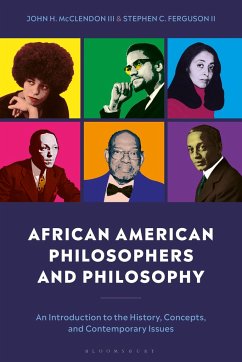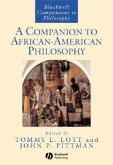This book presents the first introduction to African American academic philosophers, exploring their concepts and ideas and revealing the critical part they have played in the formation of philosophy in the USA.The book begins with the early years of educational attainment by African American philosophers in the 1860s. To demonstrate the impact of their philosophical work on general problems in the discipline, chapters are broken down into four major areas of study: Axiology, Social Science, Philosophy of Religion and Philosophy of Science. Providing personal narratives on individual philosophers and examining the work of figures such as H. T. Johnson, William D. Johnson, Joyce Mitchell Cooke, Adrian Piper, William R. Jones, Roy D. Morrison, Eugene C. Holmes, and William A. Banner, the book challenges the myth that philosophy is exclusively a white academic discipline. Packed with examples of struggles and triumphs, this engaging introduction is a much-needed approach to studyingphilosophy today.
This groundbreaking work introduces us to the ideas of African American (AA) who were academically trained in classical and modern philosophy. It shows the extent that philosophical reflection has been present among AA scholars, though their work has been ignored by the philosophical establishment. The chapters explore AA contributions to philosophical questions regarding: the origins of philosophy; ethics; aesthetics and the philosophy of music; philosophy of science; and the philosophy of religion. The glossary is invaluable resource. It provides a list of 103 AA's with doctorates in philosophy and related fields granted since emancipation, the institution they graduated from, and their dissertation title. This work provides a needed historical framework for AA academic philosophy. Albert Mosley, Professor of Philosophy, Smith College, USA 20190129








